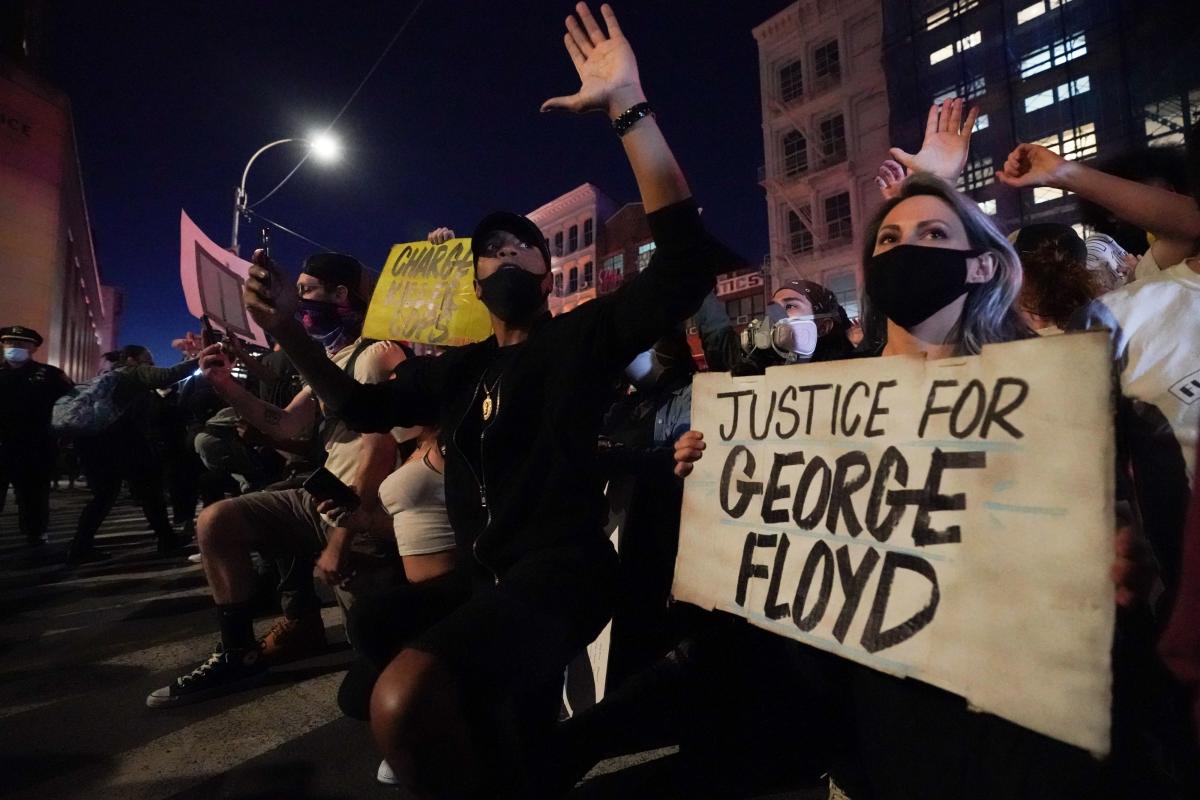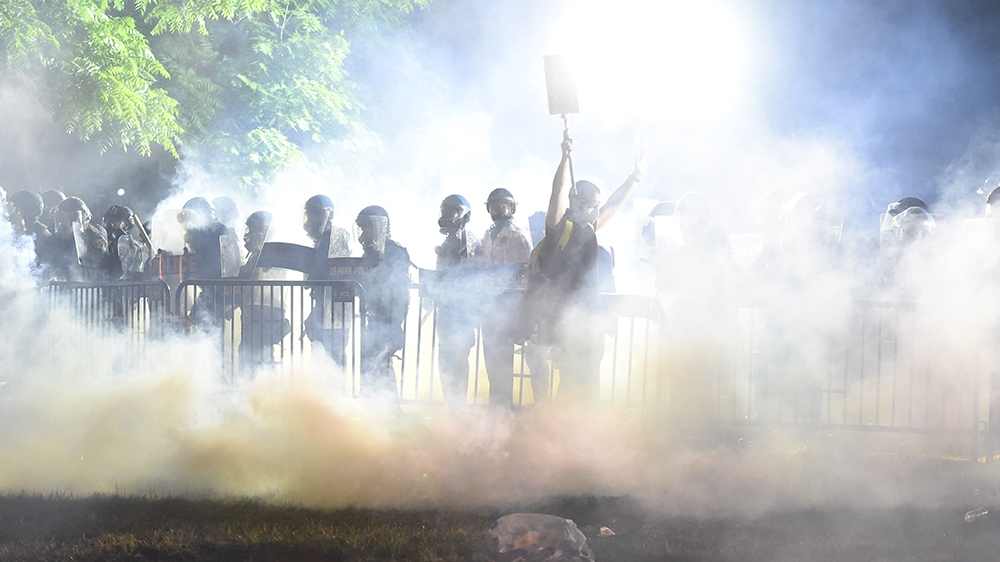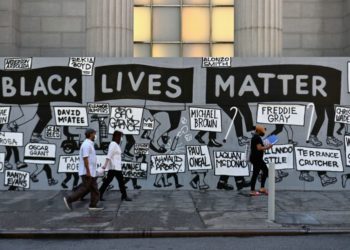Like many of my friends and acquaintances, I worry about some elements of the anti-racism protests raging across the country. I worry about the looting, the fires, and the violence. I worry about the long-term effects on the communities where most of the property damage is happening. I worry about business owners and their employees. I worry about the spread of COVID-19 among marchers who are not properly social distancing.
But most of all, I worry about the lives and health of the people involved in physical confrontations, exposed to tear gas and pepper spray, shot by rubber bullets, hit with rocks and bottles, and so on.
Worry is reasonable under the circumstances. But to all the people worrying with me, it’s essential to realize one thing: the time to stop these protests is not today, tomorrow, or even this week.
What is happening in the streets of Minneapolis, Louisville, Baltimore, Washington, DC, and in cities and towns in every other state in America (to say nothing of aligned protests around the world) is a reasonable, predictable, inevitable reaction to decades – in fact, centuries – of oppression and injustice.
Black Justice Movements
On Saturday, Michael Harriot, at African-American-oriented online magazine The Root, posted a very truncated timeline of events leading up to “the mushroom cloud of uprisings that are exploding across the country in the wake of the deaths of George Floyd, Breonna Taylor, Ahmaud Arbery and countless others.”
Harriot’s timeline starts in 1619, but even if you fast-forward to just the past decade, it includes 20 high-profile examples of excessive force, injustice, and murder that easily justify the anger and pain erupting right now.

Anyone who follows Black justice movements knows that, like Harriot, most racial justice advocates have litanies of people killed, brutalized, and victimized that they recite like prayers: Trayvon Martin, Mike Brown, Sandra Bland, George Floyd. Or Rekia Boyd, Eric Garner, Philando Castile, and Breonna Taylor.
The litanies are stories – material reminders – of the deeply unfair and openly hostile attitudes that Black people face in American culture, and especially at the hands of police and the criminal justice system.
There are dozens of litanies – maybe hundreds, potentially thousands – because there are countless examples of Black and brown people being beaten, tortured, and killed without any expectation, much less guarantee, of justice. The litanies are old, but they are also new, tragically open to revisions and recent additions.
American Justice’s Systematic Racial Bias
It’s not just the accumulation of individual experiences, either. As increasing amounts of coverage make clear, the racial bias of American justice is systemic, which means the racial disparities persist even when well-meaning people join the systems with the intent of making them fairer.
There’s ample research about these issues. Black children are targeted for punishment in schools at much higher rates than white children beginning in kindergarten. Black people of all ages are disproportionately policed, even though they are not more likely to break the law than their white counterparts. Black people are more likely to be killed by police than white people, but their murders are much less likely to be solved.
The idea has been floated (a lot) that these disparities are the result of Black people being inherently more inclined to commit crimes, but there’s ample evidence that that claim is a racist fantasy. Over and over again, the research demonstrates that Black people are victims of American justice, not beneficiaries.
The point, of course, is that the fundamental injustices of American justice fall predictably and disproportionately on communities of color, and in particular, on Black communities. And without any recourse or reliable expectation of justice, protests are inevitable.
And when there are protests, especially on the current scale, rioting, looting, fires, and violence are inevitable, whether as legitimate expressions of pain and anger or because a few bad actors are taking advantage of the unrest.
Equal Justice
Viewed from a societal level, it doesn’t really matter who is responsible for the riotous parts of these protests. What matters is that the only way to prevent rioting is to prevent the protests in the first place. And the only way to prevent protests is to ensure equal justice across communities. I repeat, if we want to prevent riots, we have to ensure equal justice for everyone – a point that Black Americans (and many others) have been making for centuries.
Americans can wring their hands about rioting and point to “outside agitators” or “a few bad apples” taking advantage of “legitimate protests.” But those explanations of what’s happening are diversions. The truth is, these protests and the associated riots are predictable – and utterly rational – responses to systematic injustice. In fact, they may be the most rational response to systemic injustice.
The U.N. Human Rights Council will hold an urgent debate on allegations of 'systemic racism, police brutality and violence against peaceful protests' in the United State https://t.co/Tn00Q5T974
— Reuters (@Reuters) June 15, 2020
In the next few days, the police and National Guard (and, god forbid, the military) may well put down the protests and the riots that are currently roiling the country. But putting down a riot doesn’t stop it. It likely exacerbates the problems. Protests are reactions, symptoms of a terrible disease. Until we treat the disease, the symptoms are inevitable and irrepressible.
Today is not the time to stop the protests over George Floyd’s, Breonna Taylor’s, and Ahmaud Arbery’s deaths. We missed our chance to stop these riots. We willfully let it pass us by because we haven’t learned the lessons from all the riots that have preceded us.
On the other hand, today is the day to stop the next protests by making a more just system. We have good ideas about how to do it. For those of us who are not protesting or rioting, we need to stop wringing our hands about looting and rioting and turn our attention to the actual work of making a better, more just world.
Disclaimer: The views and opinions expressed here are those of the author and do not necessarily reflect the editorial position of The Globe Post.























